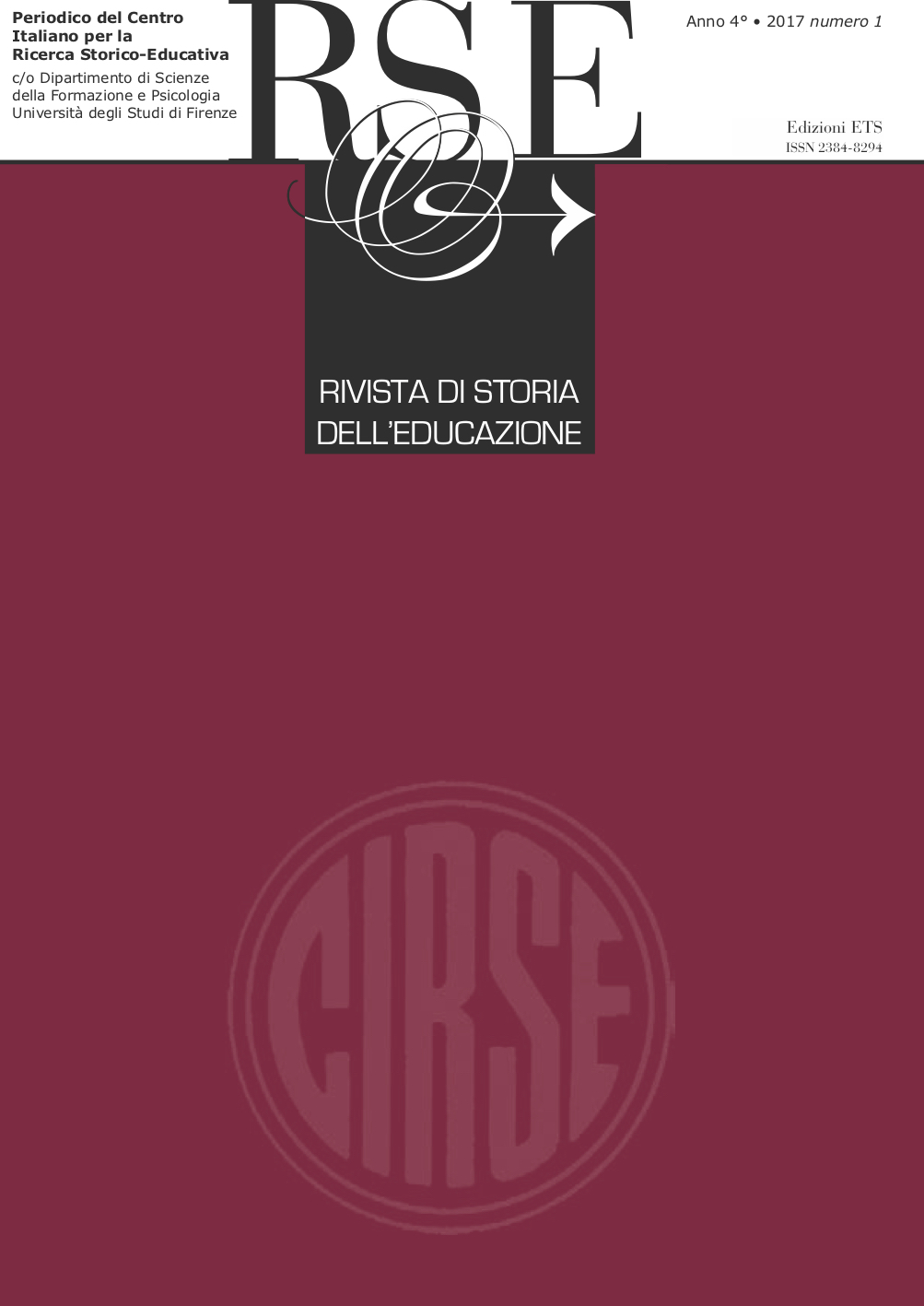Published 2017-11-13
Keywords
- Childhood Education, Childhood History, Children’s Rights, Childhood and Work, Consumption and Childhood
How to Cite
Abstract
The contribution intends to reflect, through a historical-critical approach, around the links that in the last decades of the 20th century have come to be established between rights of protection and rights of active participation, in the cultural debate on the figure of the child-citizen of the present democratic and complex society. The question is not marginal: there is a “paradoxicality” inherent in the very idea of first generation rights extended to a younger age subject, that needs to be adequately resolved. There still are serious prejudices that push the child to be seen as an “unfinished” subject (Moro 1991): its own characteristics make him incapable of acting in the social contexts, producing changes (Baraldi 2008). When the focus is put on the relationship with the mass media, then the preponderance of protection, with respect to participation, becomes almost absolute. Special attention has been given to issues relating to the risks of early adultization, commodification and, more generally, the symbolic violence inflicted on childhood in the consumer and technology society (Postman 1982; Popper, Condry 1996; Bourdieu 1997). The “apocalyptic” view (Eco 1964) must be circumscribed, to propose some critical elements that may be useful for promoting an educational approach aimed at restoring the active role of the child-citizen-consumer.

